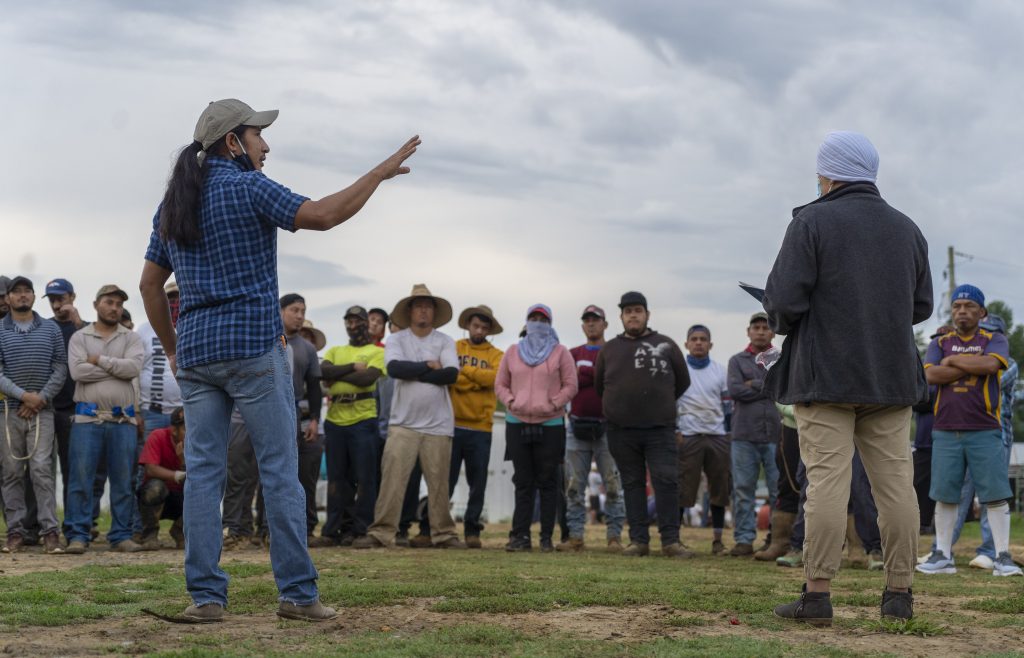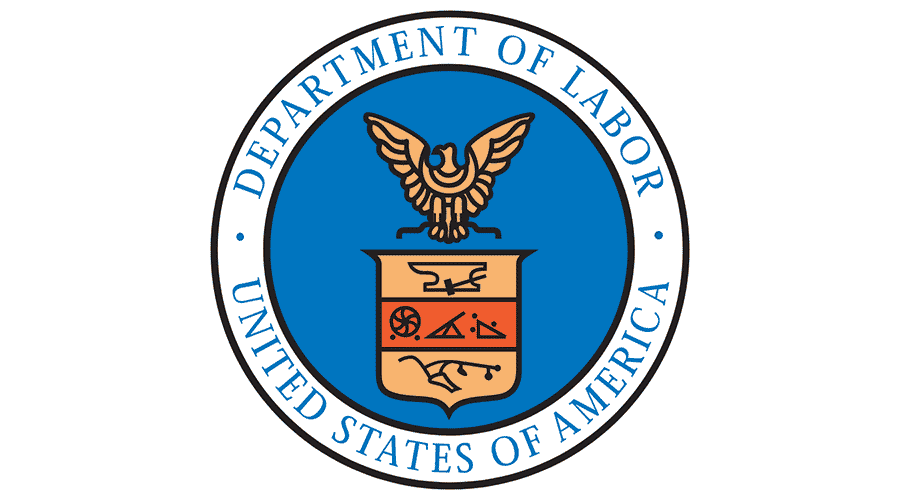
US Dept of Labor Report: “The FFP has raised compensation, reduced health and safety risks, and eliminated forced labor, child labor, and gender-based violence for approximately 30,000 workers at 20 employers supplying 14 retail, fast-food, and food-service companies.”
“When authentic worker voice exists, workers participate in collective efforts to… identify problems, propose solutions, negotiate agreements, and hold parties accountable – democracy in action, at work.”
A newly released report from the US Department of Labor compiles countless case studies from around the world to conclude that enhancing workers’ voices promotes more robust communities, and safer, more equitable, more democratic workplaces. More tangibly, the report concludes that WSR programs, like the Fair Food Program and the International Accord covering garment workers in Bangladesh and Pakistan, provide proven tools needed to ensure both that workers have a voice, and that those voices are heard within global supply chains.
This report comes on the heels of the US Department of Agriculture recognizing WSR as the highest level of labor protection offered in the fields, and offering millions of dollars in grants to farms that join the Fair Food Program. The USDA’s new subsidy program prompted 32 new farms in over 20 states to join the FFP, extending the program’s Presidential Medal-winning protections thousands of more workers in the near-future.
A summary of the report defines worker voice, and outlines the stakes of enshrining that voice in the economy:
“Worker voice contributes to a culture and practice of democracy. When authentic worker voice exists, workers participate in collective efforts to elect their representatives, identify problems, propose solutions, negotiate agreements, and hold parties accountable – democracy in action, at work. And workers whose rights and livelihoods are secure have the stability to be engaged citizens beyond the workplace, in the community and the broader political sphere.”
We are excited to share some key, relevant excerpts of the report below, including a case study on the Coalition of Immokalee Workers’ FFP! Click here to read the report in its entirety.

Worker Voice: What it is, what it is not, and why it matters
Worker Voice in Agricultural Employment in the United States
Agriculture employed 27% of the world’s workers in 2021, yet worker voice in agriculture is impeded by denials of legal protections and disempowering effects of the contemporary organization of food supply chains. These impediments to farmworker voice are widespread, and determinant in the United States, where 2- to 3 million farmworkers make the United States the largest agricultural exporter in the world. In the context of impeded worker voice, U.S.-based farmworkers have strategically innovated to improve their livelihoods, and they face significant limitations…
The Coalition of Immokalee Workers (CIW)
…The second example of farmworkers’ exercising voice in the United States is the CIW, which created the Fair Food Program (FFP), a private, non-union regulation system… Workers of Guatemalan, Haitian, and Mexican heritage united, responded to workplace abuses with collective actions, and founded CIW in the 1990s. In the absence of any governmental protection of collective bargaining rights and the anti-union culture of Florida, they established CIW as a worker center. The founders’ inclusiveness continues to shape CIW’s struggle for protection of immigrant, women’s, and labor rights. Democratically, CIW uses popular education methodologies for workers to lead themselves, which involve political education of their membership base, collectively analyzing problems and creating strategies to address them, regular meetings, peer-to-peer trainings, and their Radio Conciencia station… CIW’s participatory approach facilitated their power analysis of the industry and a change in tactics. They redirected collective action toward consumer-facing companies that buy from—and therefore have leverage over—their employers and enlisted student and faith-based activists to strengthen their case to and put pressure on companies to join the FFP.
With the FFP, the CIW combines its participatory practice with a supply chain strategy. Under the FFP, participating buyers sign [leglly-binding] agreements… to purchase products from suppliers in good standing, cease purchasing from suspended suppliers, and pay the Fair Food Premium that suppliers pass through to workers. Good standing means compliance with employment standards developed by CIW. The specificity of the FFP standards to CIW members’ workplace issues demonstrates the importance of workers identifying problems and solutions. The Fair Food Standards Council (FFSC) audits employers against the standards—which enables it to access and interview at least half the workforce—suspends non-compliant employers and manages a 24/7 worker complaint system. FFSC has maintained independence from employers by operating as a 501(c)3 non-profit organization and obtaining grants to fund its operations. The FFP has raised compensation, reduced health and safety risks, and eliminated forced labor, child labor, and gender-based violence for approximately 30,000 workers at 20 employers supplying 14 retail, fast-food, and food-service companies.”
The Department of Labor study on worker voice is just the latest official recognition of the unique power of the Fair Food Program and the Worker-driven Social Responsibility model to identify, claim, and defend workers’ fundamental human rights in corporate supply chains, following not only the USDA’s recent program but many more statements and actions by federal law enforcement and policy departments — from the White House to the Department of Justice, the FBI, Customs and Border Protection, the Equal Employment Opportunity Commission, and more!
The report is a great read and we strongly recommend you take the time to read it in its entirety here. And check back soon for more on this groundbreaking new study as well as all the news from the front in the Campaign for Fair Food.
